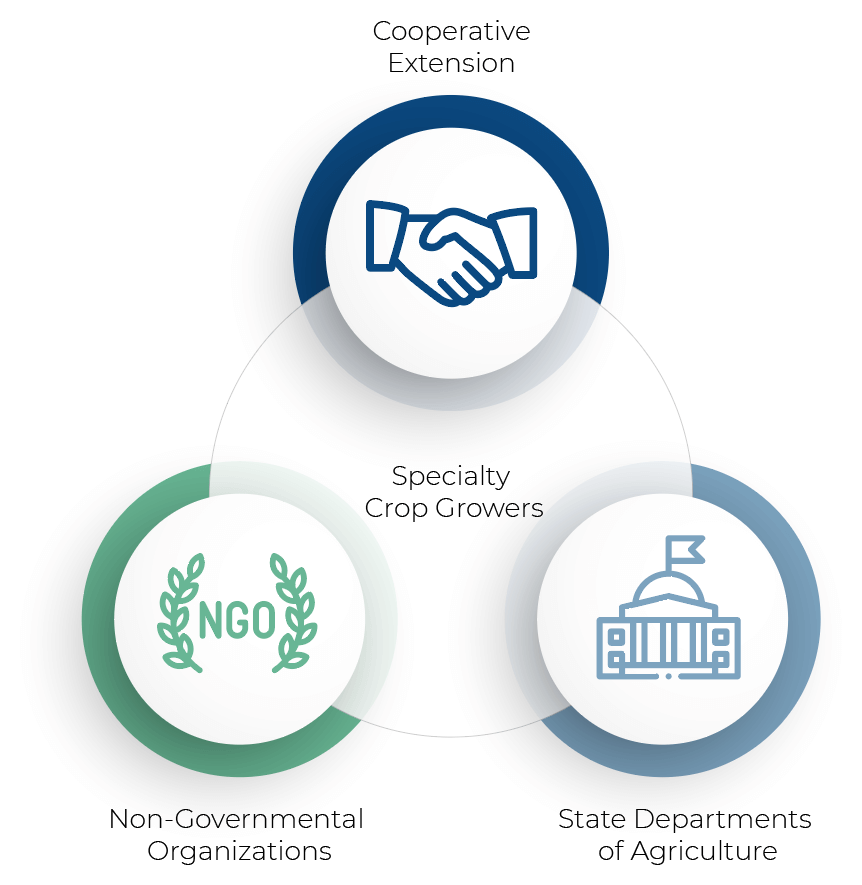Evaluating market requirements will help growers make decisions about which certification is right for them.
ALL market sectors are looking for some level of food safety practices to be in place. How do you know if your farm operations need a GAP certification to show your commitment to industry best practices?
Does Your Buyer Require GAP Certification?
As with any market decision, it’s important to have a discussion with your current and/or prospective buyers. Asking these questions will help determine your next steps:
What are my current and potential markets?
ALL market sectors are looking for some level of food safety practices to be in place. GAP certification opens new doors to larger, more stable and more profitable markets. Certified growers have opportunities to distribute to local markets, such as colleges/universities, community organizations, corporate cafeterias, early childcare, eldercare facilities, hospitals, school districts/school food authorities, restaurants, retailers, prisons, and food distributors.
What food safety requirements must be satisfied?
Consumers and retailers demand accountability when it comes to producing, buying and selling fresh produce. Developing, implementing and auditing a food safety plan are essential steps in obtaining GAP certification and can reduce both health and business risks for consumers and growers.
Is a GAP audit required?
As with any market decision, it’s important to have a discussion with your current and/or prospective buyers. Ask them what their specific food safety requirements are, and how they will verify your practices.
Which GAP audits are accepted?
To meet food safety requirements, buyers will communicate the GAP standard they will accept, commonly referred to as buyer acceptance. Regardless of the type, all audits address hazards, identify routes of contamination, implement good agricultural practices, and document activities. The main differences are the level of complexity, stringency, and cost.
How to Determine if GroupGAP is Right For You.
To meet food safety requirements, buyers will communicate the GAP standard they will accept, commonly referred to as buyer acceptance. In addition to meeting food safety standards, buyers are also looking for a wide array of product characteristics such as product variety, quality, consistency, availability, volume, price, and deliverability. With the systems approach, GroupGAP may ensure consistency in meeting customer needs, and may foster a transparency that builds customer confidence.
Since there is not a ‘one size fits all’ standard across all market sectors, it is vital that you communicate with your buyers, understand the requirements, and develop a well-aligned food safety program.
If your buyer accepts GroupGAP, additional considerations can help you decide if its right for you:
- Do you have a group of producers who are willing to share responsibility for implementing food safety practices?
- Do you have the physical and logistical capacity to create a group?
- Does the group have a knowledgeable staff member, or is the group able to hire an individual who can write and implement a Quality Management System?
- Does the group have staff members, or does the group have the ability to hire an individual(s), who can meet the USDA auditor criteria?
- Do you know that all farms in a group do not have to grow the same specialty crop?
Contact the Right People.
If you have determined that your buyer requires GAP certification, the next step is to contact the right people. They can help you receive training, develop farm assessments and food safety plans, and prepare for the audit.

Other Resources
Please visit our Resource page for additional information, guides and checklists that can assist in the process.

